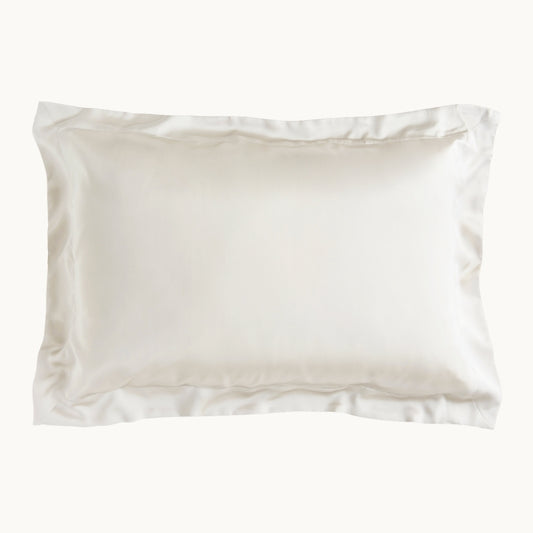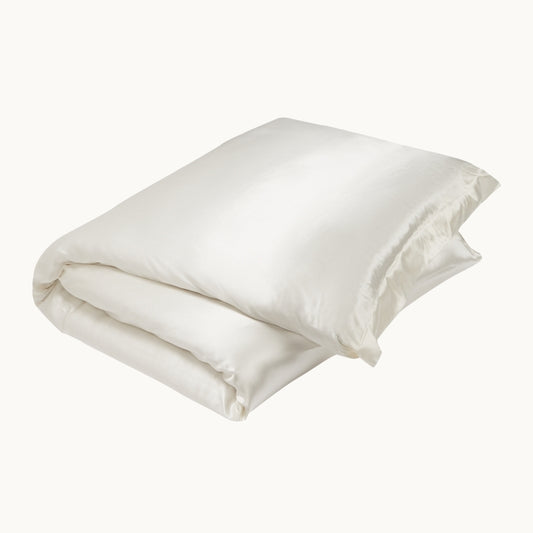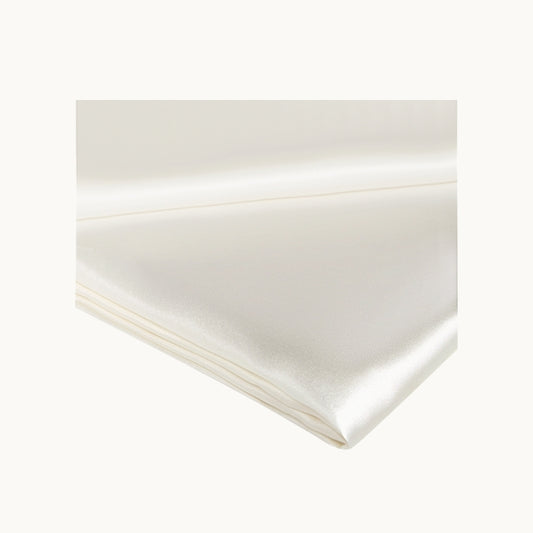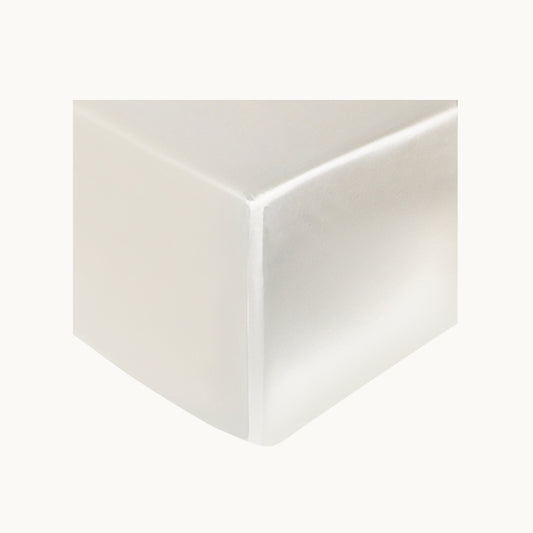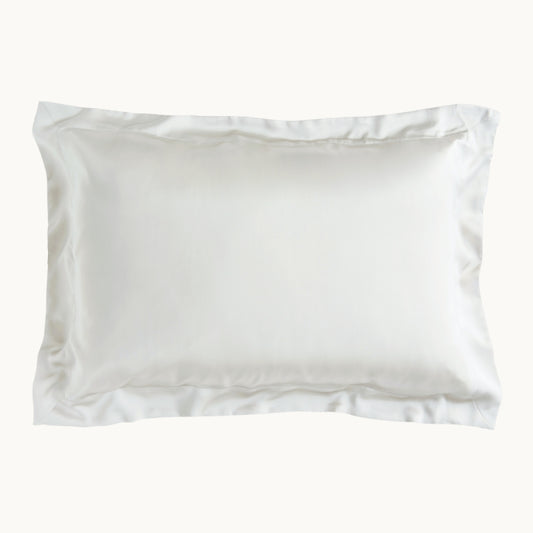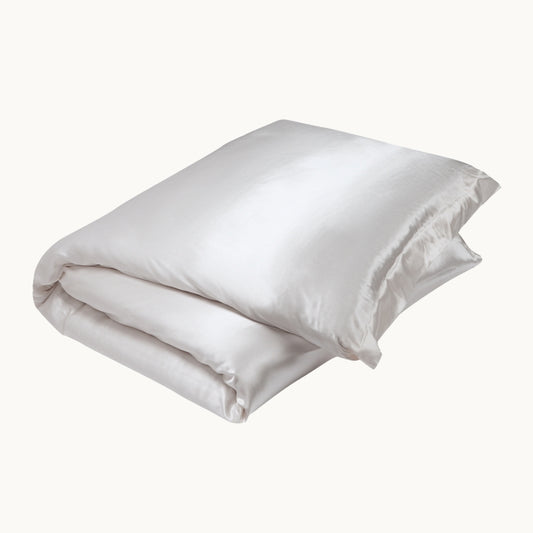Silk provides a superior, luxurious feel that can transform your sleep for the better. However, this delicate material requires a little extra care when it comes to washing. Depending on the kind of silk, and the type of silk product, professional cleaning and upkeep may be essential, although more often than not, silk bed linen can be cared for at home.
It’s important to follow care instructions to avoid any damage, which is why we’ve created this guide on how to properly care for silk bedding and bed linen. We’re going to take you through everything you need to know about caring for silk, to help give you peace of mind so you can enjoy the long-lasting benefits and opulent feel that it has to offer.
How to wash silk bed linen
You might be surprised to know that you can machine wash your silk bed linen. However, it does require a little bit of extra attention and care to ensure that you’re not using the wrong detergents or the wrong settings. To help you enjoy the long-lasting quality of your silk linens we’ve included everything you need to know about washing your silk bed linens below.
How to wash silk pillowcases and duvets
Here at Gingerlily, all of our silk pillowcases and duvets are crafted with the finest A-grade mulberry silk to ensure you experience the most luxurious feel, however, this also means they require a little extra care than a regular cotton pillowcase. For example, our ivory silk pillowcase is crafted from 100% mulberry silk, making it a very soft and delicate material for your skin and hair, but this also means it will need to be washed very gently to not damage the silk proteins. The silk proteins are what contribute to the benefits that silk has on your skin and hair, so damaging them will reduce the effectiveness of helping you achieve clear skin and soft hair whilst you sleep.

Ivory Silk Pillowcase from £105
When it comes to cleaning silk pillowcases and duvets, it’s best to wash them at 30°c or below. Use a colder ‘hand wash’ setting when putting your silks into your washing machine, if your washing machine doesn’t have a hand wash setting then use a ‘Delicates’ wash instead, to protect the silk fibres from being destroyed. We would also recommend turning each silk pillowcase inside out before placing it in the washing machine to help further protect the silk.
How to wash silk bed sheets
Silk sheets are usually very thin and won't take very long to wash at all, we recommend washing them at a low temperature using a delicate detergent just like for your pillowcases and duvets. For larger sheets, it’s best to hang them out to dry as this will help remove any creases that may remain after washing.
How to wash silk bedding
Washing your silk bedding is a bit different from washing your silk linen. Bedding is a lot thicker and won't fit into a washing machine like your linen will and are much more susceptible to damage with their delicate stitching - so they will require a bit extra care when you’re looking to give them a refresh.
How to wash silk mattress toppers and protectors
In the case of our silk mattress toppers and protectors - it isn’t necessary to thoroughly clean these items on a frequent basis as they aren’t susceptible to mites and work to prevent sweating. When you want to give your silk mattress toppers and protectors a freshen-up then simply hang them up to air outside. This will also allow your bedding to maintain its shape and plumpness.
If you get an unfortunate stain or spillage on your silk mattress topper, it is best to hand wash the area you want to clean and leave it out to dry. In instances where your silk-filled duvet requires a more thorough cleaning, we would recommend having it professionally laundered.
How to wash silk bedspreads
Due to the blend of fabrics in silk bedspreads and the thickness of these products, they are usually dry clean only as machine washing your bedspreads can cause significant damage to the look and feel of sheets. For example, our Windsor Silk Bedspread in teal is beautifully soft with delicate stitching and is around 240cm by 240cm. With the combination of size and delicate materials, washing this product would cause it to lose shape and harden the soft silk, minimising the various benefits it can provide.

Windsor Silk Bedspread - Teal from £780
If there happens to be a spillage or stains that you wish to clean up then you can gently spot-clean that area and hand it out to dry to remove the stain in a safe way that doesn't affect the integrity of the silk.
How to wash silk pyjamas and accessories
Much like our silk bed linen, silk dressing gowns, pyjamas and accessories can be laundered on a low-temperature wash and should only be washed with silk-safe, and soft detergents.
Be sure to wash your silk nightwear garments individually to avoid colour transfer and any damage occurring from other fabrics and if you want to preserve the natural sheen and delicate feel, iron your silk nightwear on medium heat with lots of steam.
How to store silk products
When you’re not using your silk products, it’s important to store them carefully so they don’t become damaged while not in use. Without the correct storage, this can lead to mould, discolouration and ruin. To prevent this you should store your silk in cotton bags or cotton boxes and fold them with acid-free tissue paper.
Avoid putting silk into plastic boxes as this can promote moisture and yellowing, and is a prime environment for bugs. Cotton bags and acid-free tissue paper will prevent any dulling or fading of the product over time. You can also include some lavender or scented sachets to keep them smelling new and fresh.
What detergents should you use for silk?
When cleaning your silk sheets in a washing machine the type of detergent you use is very important. Silk is made from delicate, natural fibres and washing it in detergents that are too acidic or too alkaline will cause those fibres to harden. The best detergents for silk are those that are soft with a neutral pH - this will help to maintain the integrity of the silk fibres for long-lasting quality.
Along with avoiding harsh detergents, you should also avoid using fabric softener with bleaching agents, or any type of optical brightener, as they can discolour and damage the silk fibres. We recommend using the Gingerlily Liquid Silk Wash to launder your silk pillowcase to help it retain its opulent sheen.

Gingerlily Liquid Silk Washing Detergent from £10.50
The Gingerlily liquid silk wash has been specifically designed to be a gentle and mild detergent that caters to the cleaning of your silk bedding and linen without damaging the fibres like most other detergents.
We would recommend avoiding putting your silk bedding into a dryer, however, if you must, then try a gentle “air” setting to protect the silk fibers. The best way to dry your silk pillowcases and duvets is to line dry them, but try to keep them out of harsh direct sunlight as too much exposure can damage fibres and dull the colours of your silk bed linen.
Build the bed of your dreams with Gingerlily
While silk may take time and extra care when it comes to washing, the benefits of sleeping on silk are endless. From regulating body temperature to being kind to your skin and hair - there are many reasons to make the switch to silk. If you want to learn more about the health benefits that silk provides you can read through our blog and discover first-hand what silk can do for you.
At Gingerlily each of our products has been crafted with the finest mulberry silk, so whether you’re looking for silk bed sheets or silk bedspreads, experience the full luxurious benefits of this delicate fabric first-hand and browse through our complete collections on the Gingerlily website.






